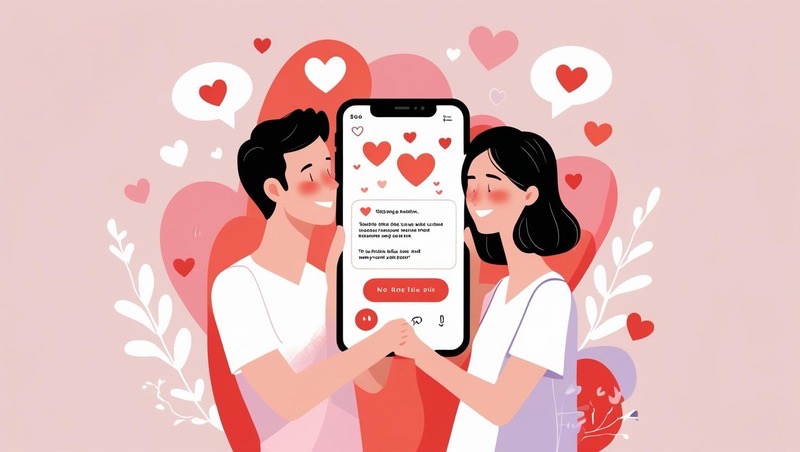
Why You Should Stop Texting First — and What Happens Next
If you’ve ever felt like the only one initiating conversations, making plans, or keeping the energy alive, you’ve probably wondered: What would happen if I just stopped texting first?
For many people, texting first becomes a habit of emotional labor — constantly chasing connection, trying to hold someone’s attention, and hoping they’ll finally match your effort. It’s draining, frustrating, and, over time, deeply disempowering.
The truth is, there’s nothing wrong with texting first — unless it’s the only direction the energy flows. When that happens, it’s not communication. It’s chasing. And knowing when to pause and step back is a powerful tool in reclaiming your self-worth and relational balance.
In this guide, we’ll unpack the psychology behind why you should stop texting first (at least temporarily), what tends to happen when you do, and how to regain emotional clarity without turning it into a game.
Why You Keep Texting First (Even When It Feels One-Sided)
Most people don’t chase because they enjoy it — they chase because they’re trying to fill a gap.
You might text first constantly because:
- You’re afraid they’ll forget about you if you don’t.
- You think effort equals interest — even if it’s not reciprocated.
- You’re trying to “prove” your value by being consistent.
- You’ve been taught that showing initiative is attractive (which it is — in moderation).
According to licensed therapist Jennifer Rollin, over-efforting often comes from an unconscious desire to earn love instead of receive it freely. This mindset can trap you in patterns where your needs are always second.
The Psychological Toll of Always Reaching Out First
Initiating communication all the time might seem harmless — but over time, it erodes your self-esteem and shifts the dynamic of the relationship.
Here’s what it can lead to:
- Anxious attachment triggers — feeling hyper-vigilant about being ignored.
- Unequal emotional labor — constantly holding the weight of communication.
- Loss of clarity — not knowing if they actually care or are just responsive out of habit.
- Resentment — silently wondering why they don’t match your energy.
Eventually, texting first all the time feels less like connection and more like auditioning for attention.
What Happens When You Stop Texting First
If you’ve been doing all the reaching out and you suddenly stop, three common outcomes tend to unfold:
1. Nothing Happens — And That’s Your Answer
The most painful, but most clarifying outcome. They don’t notice. They don’t reach out. The connection fizzles.
It hurts — but it’s also incredibly freeing.
This response shows you:
- Who was never truly invested
- Who relied on your energy to keep things going
- Who was benefiting from your consistency without giving anything back
It’s not rejection — it’s redirection.
2. They Reach Out — But Only When You Stop
This is the breadcrumb scenario: they only check in once you go quiet.
The timing is suspicious:
- You stop texting, and suddenly they’re “thinking of you.”
- They don’t ask you out — but they send memes or vague “heyy” messages.
- It feels like interest, but nothing moves forward.
This pattern is classic intermittent reinforcement, a psychological tactic explored in PsychCentral’s article on breadcrumbing. It keeps you emotionally hooked without offering anything real.
Your job? Notice the pattern. Don’t reward minimal effort.
3. They Start Matching Your Energy
The best-case outcome. You pause — and they rise. They check in, initiate plans, and show they’re genuinely invested.
This response tells you:
- They might’ve assumed you liked taking the lead.
- They just needed space to step up.
- They’re actually interested — and willing to show it.
This is the rarest, but most rewarding outcome. And it only happens when you stop carrying the entire emotional weight yourself.
Why This Isn’t a “Game” — It’s Emotional Self-Respect
Pausing your efforts isn’t manipulation. It’s a recalibration of your energy.
Here’s the difference:
- Games are played to win power over someone else.
- Boundaries are set to protect your peace and clarity.
By stepping back, you’re giving someone a chance to meet you where you are, not drag you down to where they aren’t.
How to Stop Texting First Without Feeling Anxious
If you’re used to over-giving in relationships, not texting first can trigger anxiety — especially if you’re dealing with anxious attachment tendencies.
Here’s how to navigate the discomfort:
1. Set a Time Frame
Try pausing for 3–5 days. Give space for natural energy to return.
2. Journal the Impulse
When you feel the urge to reach out, write what you’re feeling. Are you lonely, bored, afraid of being forgotten?
Awareness takes the edge off the urgency.
3. Focus on Receiving Energy
Instead of asking, “Why aren’t they texting me?” ask, “Who is showing up without being chased?”
Redirect your focus to those who match — not those who drain.
What to Do If They Never Reach Out
If silence is met with silence, your answer is loud.
This doesn’t mean you weren’t good enough. It means:
- You were overextending
- They weren’t emotionally available
- The connection was one-sided
The best closure is recognizing the truth — and choosing not to fight it.
Rebuilding Self-Worth After a One-Sided Dynamic
You may feel rejected or discarded when you stop texting first and get no response. That’s natural — but it’s not the end of the story.
Ways to rebuild your confidence:
- Reconnect with friends who reach out first
- Engage in activities that make you feel energized and whole
- Celebrate the courage it took to pause
- Reflect on patterns you’re ready to break for good
Confidence doesn’t come from being chosen. It comes from choosing yourself even when you weren’t.
Final Thought: The One Who Wants You Won’t Need Reminding
You’re not “too much” for wanting consistency. You’re not “clingy” for wanting reciprocity. You’re just done begging for bare minimums.
The person who’s meant for you will reach out. They’ll check in, match your energy, and initiate without being prompted.
You won’t need to analyze every silence or make excuses for their distance.
You’ll just know — because they’ll show up.


